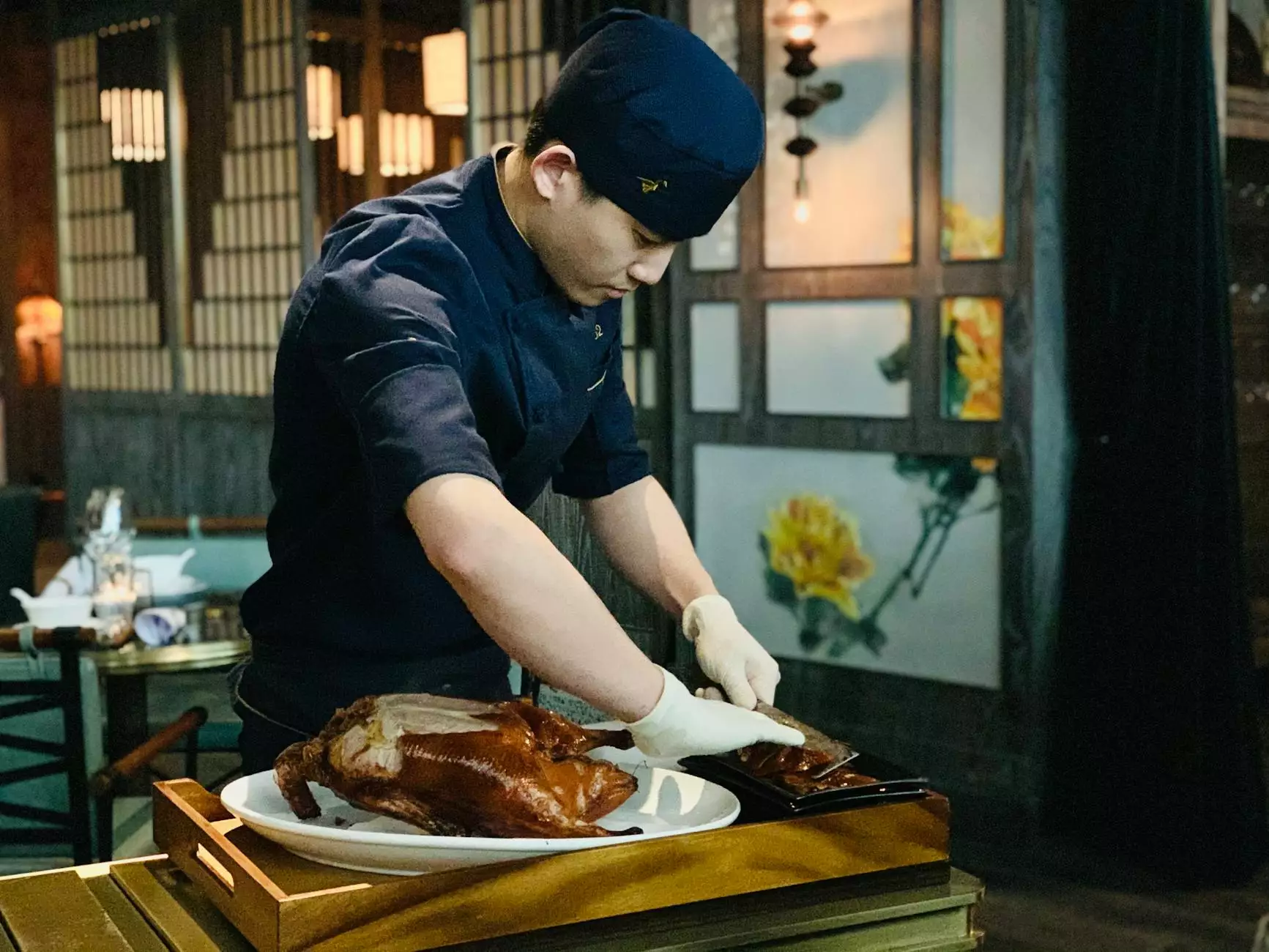The Ultimate Guide to Running a Successful Restaurant Business

Introduction
Welcome to Restaurant Store, your go-to resource for everything related to the restaurant industry. Whether you own a restaurant, work as a caterer, or are simply passionate about food, our goal is to provide you with valuable insights, tips, and strategies to help you succeed in the competitive world of culinary entrepreneurship.
1. Understanding the Restaurant Business
Running a successful restaurant business requires more than passion for food. It involves careful planning, efficient operations, and effective marketing strategies. As a restaurant owner, you must constantly adapt to changing consumer preferences while maintaining the highest standards of food quality and customer service.
To establish your presence in the market, it is important to understand your target audience and their preferences. Conduct thorough market research to identify gaps, trends, and opportunities in the restaurant industry. This will give you a competitive edge and help you tailor your menu, ambiance, and overall concept to meet the needs of your customers.
Additionally, consider the location of your restaurant. The right location can significantly impact your business's success. Choose an area with high foot traffic, easy accessibility, and proximity to your target demographic. A prime location can attract more customers and increase your chances of success.
2. Crafting a Memorable Dining Experience
Creating a memorable dining experience is crucial for attracting and retaining customers. It goes beyond serving delicious food – it encompasses the ambiance, customer service, and overall atmosphere of your restaurant.
Differentiate your restaurant by developing a unique brand identity. Use creative interior design, catchy branding elements, and a well-thought-out menu to create a strong brand image that resonates with your target audience. This will help your restaurant stand out amidst the competition and leave a lasting impression on your customers.
Invest in training your staff to provide exceptional customer service. Friendly and knowledgeable staff can enhance the overall dining experience and leave customers satisfied and eager to return. Remember, word-of-mouth referrals from happy customers can be a powerful marketing tool.
3. Mastering the Art of Menu Creation
Your menu is the heart and soul of your restaurant. It showcases your culinary expertise and entices customers to try your offerings. When designing your menu, consider the following tips:
- Highlight your specialties: Feature your signature dishes prominently on the menu to showcase your unique selling points.
- Offer variety: Cater to different dietary preferences, such as vegetarian, vegan, gluten-free, and allergen-friendly options.
- Keep it concise: A cluttered menu can overwhelm customers. Streamline your offerings and focus on quality rather than quantity.
- Include attractive descriptions: Use descriptive language to make your dishes sound irresistible to customers.
4. Effective Marketing Strategies
In today's digital age, effective marketing strategies are essential for gaining visibility and attracting new customers. Utilize the power of online marketing to maximize your restaurant's reach. Here are some strategies to consider:
- Develop a visually appealing website: Your restaurant's website should be visually appealing, easy to navigate, and mobile-friendly. Include high-quality images of your dishes, an online reservation system, and an intuitive menu to optimize the user experience.
- Optimize for local search: Incorporate local keywords, such as your city or neighborhood, in your website's content. This will enhance your restaurant's visibility in local search results.
- Engage on social media: Create engaging content on platforms like Facebook, Instagram, and Twitter. Share behind-the-scenes stories, showcase new menu items, and interact with your followers to build a loyal customer base.
- Collaborate with influencers: Partner with influencers in the food industry to promote your restaurant. Their recommendations can significantly increase your visibility and attract new customers.
5. Efficient Operations and Streamlined Processes
To run a successful restaurant business, you must prioritize efficiency and streamline your operations. Implementing the following strategies can help you optimize your restaurant's performance:
- Invest in reliable restaurant management software: Use industry-specific software to streamline your operations, manage reservations, track inventory, and analyze sales data.
- Train your staff on efficient workflows: Develop standardized processes and provide proper training to your employees to increase efficiency and reduce errors.
- Optimize your supply chain: Build strong relationships with trusted suppliers to ensure consistent quality and timely delivery of ingredients.
- Monitor customer feedback: Regularly review customer feedback and address any issues promptly to maintain high levels of customer satisfaction.
Conclusion
The restaurant business is both challenging and rewarding. By understanding the intricacies of the industry, crafting a memorable dining experience, mastering the art of menu creation, implementing effective marketing strategies, and prioritizing efficient operations, you can set your restaurant up for success.
Remember, Cook Serve is here to support you throughout your culinary journey. Explore our website for more valuable resources, expert advice, and inspiring success stories. Together, let's turn your passion for food into a flourishing restaurant business!








